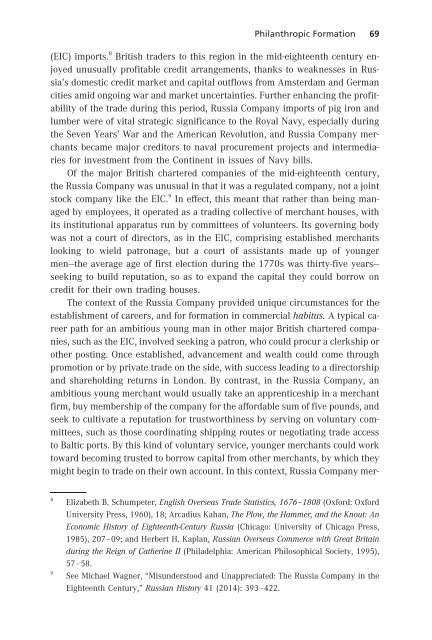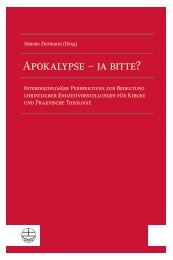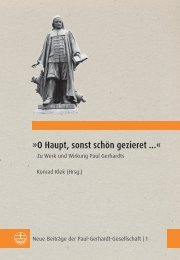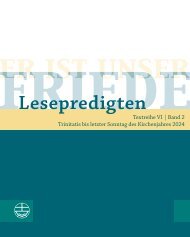Piet Naudé | Michael Welker | John Witte, Jr. (Eds.): The Impact of Political Economy (Leseprobe)
In our late modern pluralistic societies, there are tensions and complementarities between a plurality of individual and social claims and activities to shape societal life and a constructive pluralism of what is known as social systems. The latter provide normative codes and powers emanating from the areas of law, religion, the family, the market, the media, education, academic research, health care, defense and politics. A better understanding and steering of this complex division of powers is crucial for the common good and for freedom and peace. In this volume, a multi-disciplinary team of experts from Germany, Italy, Australia, the UK, the USA, and South Africa bring their conceptual, empirical and historical insights to bear in three broad sections: »The moral dimension of social systems«; »The interaction of religion, law and education with political systems«; and »The moral (mal)-formation evident in case studies on the global financial crisis and social media«.
In our late modern pluralistic societies, there are tensions and complementarities between a plurality of individual and social claims and activities to shape societal life and a constructive pluralism of what is known as social systems. The latter provide normative codes and powers emanating from the areas of law, religion, the family, the market, the media, education, academic research, health care, defense and politics. A better understanding and steering of this complex division of powers is crucial for the common good and for freedom and peace.
In this volume, a multi-disciplinary team of experts from Germany, Italy, Australia, the UK, the USA, and South Africa bring their conceptual, empirical and historical insights to bear in three broad sections: »The moral dimension of social systems«; »The interaction of religion, law and education with political systems«; and »The moral (mal)-formation evident in case studies on the global financial crisis and social media«.
Create successful ePaper yourself
Turn your PDF publications into a flip-book with our unique Google optimized e-Paper software.
Philanthropic Formation 69<br />
(EIC) imports. 8 British traders to this region inthe mid-eighteenth century enjoyed<br />
unusually pr<strong>of</strong>itable credit arrangements, thanks to weaknesses in Russia’s<br />
domestic credit market and capital outflows from Amsterdam and German<br />
cities amid ongoing war and market uncertainties. Further enhancing the pr<strong>of</strong>itability<br />
<strong>of</strong> the trade during this period, Russia Company imports <strong>of</strong> pig iron and<br />
lumber were <strong>of</strong> vital strategic significance to the Royal Navy, especially during<br />
the Seven Years’ War and the American Revolution, and Russia Company merchants<br />
became major creditors to naval procurement projects and intermediaries<br />
for investment from the Continent in issues <strong>of</strong> Navy bills.<br />
Of the major British chartered companies <strong>of</strong> the mid-eighteenth century,<br />
the Russia Company was unusualinthat it was aregulated company, not ajoint<br />
stock company like the EIC. 9 In effect, this meant that rather than being managed<br />
by employees, it operated asatrading collective <strong>of</strong> merchant houses, with<br />
its institutional apparatus run by committees <strong>of</strong> volunteers. Its governing body<br />
was not acourt <strong>of</strong> directors, as in the EIC, comprising established merchants<br />
looking to wield patronage, but a court <strong>of</strong> assistants made up <strong>of</strong> younger<br />
men—the average age <strong>of</strong> first election during the 1770s was thirty-five years—<br />
seeking to build reputation, so as to expand the capital they could borrow on<br />
credit for their own trading houses.<br />
<strong>The</strong> context <strong>of</strong> the Russia Company provided unique circumstances for the<br />
establishment <strong>of</strong> careers, and for formation in commercial habitus. Atypical career<br />
path for an ambitious young man in other major British chartered companies,<br />
such as the EIC, involved seeking apatron, who could procur aclerkship or<br />
other posting. Once established, advancement and wealth could come through<br />
promotion or by private trade on the side, with success leading to adirectorship<br />
and shareholding returns in London. By contrast, in the Russia Company, an<br />
ambitious young merchant would usually take an apprenticeship in amerchant<br />
firm, buy membership <strong>of</strong> the company forthe affordable sum <strong>of</strong> five pounds, and<br />
seek to cultivate areputation for trustworthiness by serving on voluntary committees,<br />
such as those coordinating shipping routes or negotiating trade access<br />
to Baltic ports. By this kind <strong>of</strong> voluntary service, younger merchants could work<br />
toward becoming trusted to borrow capitalfrom other merchants, by which they<br />
might begin to trade on their own account. In this context, RussiaCompany mer-<br />
8<br />
9<br />
Elizabeth B. Schumpeter, English Overseas Trade Statistics, 1676–1808 (Oxford: Oxford<br />
University Press, 1960), 18; Arcadius Kahan, <strong>The</strong> Plow, the Hammer, and the Knout: An<br />
Economic History <strong>of</strong> Eighteenth-Century Russia (Chicago: University <strong>of</strong> Chicago Press,<br />
1985), 207–09; and Herbert H. Kaplan, Russian Overseas Commerce with Great Britain<br />
during the Reign <strong>of</strong> Catherine II (Philadelphia: American Philosophical Society, 1995),<br />
57–58.<br />
See <strong>Michael</strong> Wagner, “Misunderstood and Unappreciated: <strong>The</strong> Russia Company in the<br />
Eighteenth Century,” Russian History 41 (2014): 393–422.
















